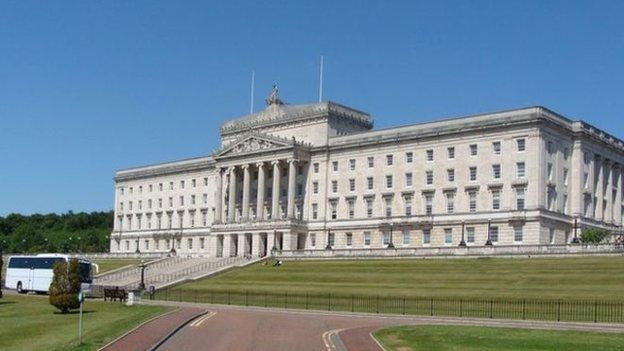Analysis: What does the power of exclusion from Stormont mean?
- Published

Politicians found to be in breach can be excluded from office for periods between three and 12 months.
The power of exclusion which the First Minister, Peter Robinson, wants to talk to other parties about is contained in the 1998 law, external which put the Good Friday Agreement into effect.
The power is designed to be used if the assembly or the Northern Ireland secretary thinks a Stormont party or one of its ministers is in breach of their commitments to non-violence, peace and democracy.
Politicians found to be in breach can be excluded from office for periods between three and 12 months.
On their own, Peter Robinson's Democratic Unionists have the 30 members of the Northern Ireland Assembly necessary to table an exclusion motion.
But for such a resolution to pass there has to be a cross-community vote.
Sinn Féin could block such a vote because its MLAs represent a clear majority of nationalists in the assembly.
If such a cross-community vote did not pass, Northern Ireland Secretary Theresa Villiers has the power to direct the exclusion of Sinn Féin from office.
If all the other members of the Stormont coalition were demanding this, Ms Villiers would have to seriously consider the option.
While Mr Robinson has talked about using the exclusion power, such a prospect remains some way off.
What will prove crucial in the coming days and weeks will be the security assessments from the Chief Constable, George Hamilton, and the Northern Ireland secretary about whether the Provisional IRA ceasefire is intact, and what role the organisation continues to play in 2015, a decade after it announced an end to its armed campaign.